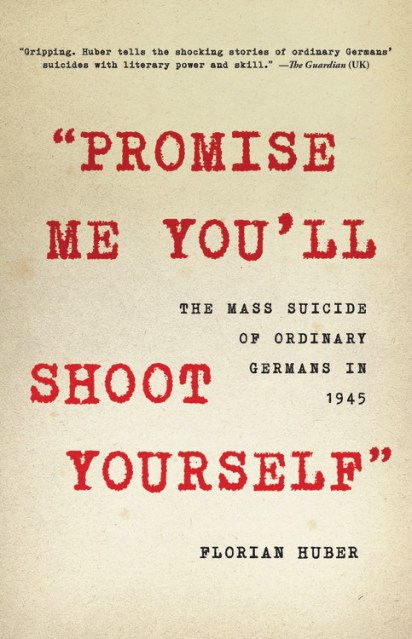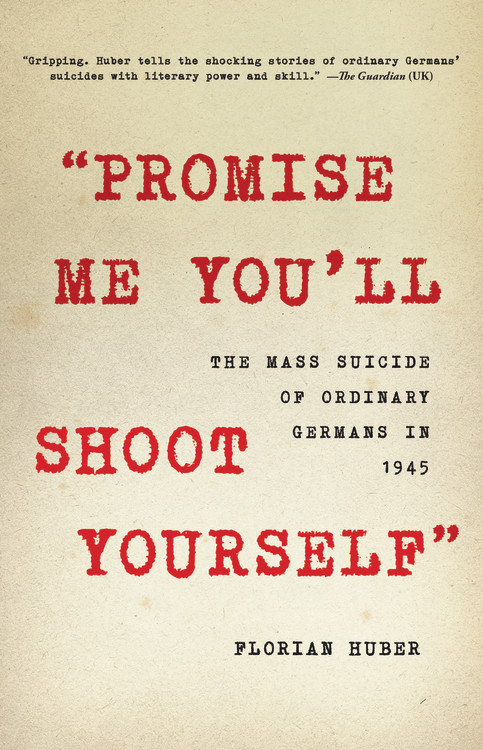Promotion
Use code MOM24 for 20% off site wide + free shipping over $45
"Promise Me You'll Shoot Yourself"
The Mass Suicide of Ordinary Germans in 1945
Contributors
Formats and Prices
Price
$29.00Price
$37.00 CADFormat
Format:
- Hardcover $29.00 $37.00 CAD
- ebook $14.99 $19.99 CAD
- Audiobook Download (Unabridged)
This item is a preorder. Your payment method will be charged immediately, and the product is expected to ship on or around March 10, 2020. This date is subject to change due to shipping delays beyond our control.
Also available from:
Named a Best History Book of 2019 by The Times (UK)
The astounding true story of how thousands of ordinary Germans, overcome by shame, guilt, and fear, killed themselves after the fall of the Third Reich and the end of World War II.
The astounding true story of how thousands of ordinary Germans, overcome by shame, guilt, and fear, killed themselves after the fall of the Third Reich and the end of World War II.
By the end of April 1945 in Germany, the Third Reich had fallen and invasion was underway. As the Red Army advanced, horrifying stories spread about the depravity of its soldiers. For many German people, there seemed to be nothing left but disgrace and despair. For tens of thousands of them, the only option was to choose death — for themselves and for their children.
“Promise Me You’ll Shoot Yourself” recounts this little-known mass event. Using diaries, letters, and memoirs, historian Florian Huber traces the euphoria of many ordinary Germans as Hitler restored national pride; their indifference as the Führer’s political enemies, Jews, and other minorities began to suffer; and the descent into despair as the war took its terrible toll, especially after the invasion of the Soviet Union. Above all, he investigates how suicide became a contagious epidemic as the country collapsed.
Drawing on eyewitness accounts and other primary sources, “Promise Me You’ll Shoot Yourself” presents a riveting portrait of a nation in crisis, and sheds light on a dramatic yet largely unknown episode of postwar Germany.
Genre:
- On Sale
- Mar 10, 2020
- Page Count
- 304 pages
- Publisher
- Little Brown Spark
- ISBN-13
- 9780316534307
Newsletter Signup
By clicking ‘Sign Up,’ I acknowledge that I have read and agree to Hachette Book Group’s Privacy Policy and Terms of Use







